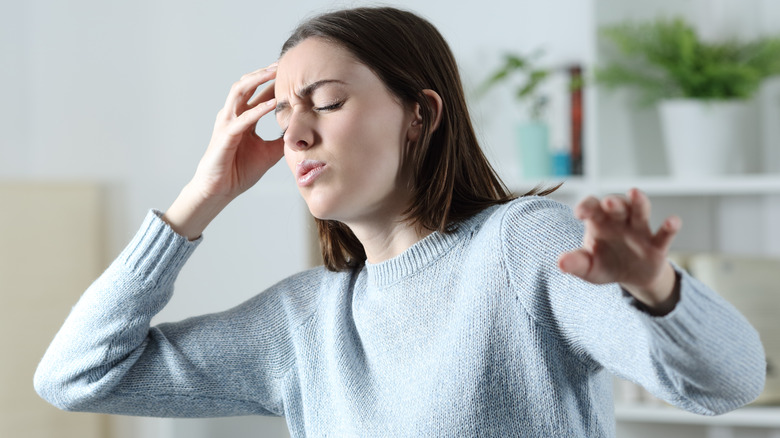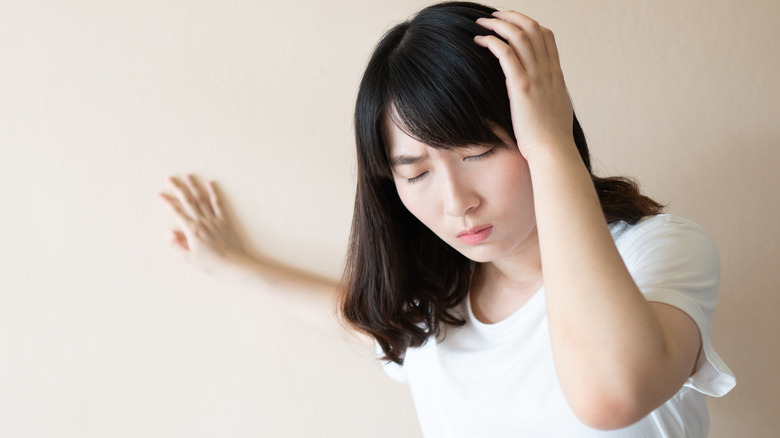What Does It Mean When You Feel Dizzy After Standing Up?
Whether your working from home or in an office, a lot of jobs require you to sit down for a prolonged period of time. On occasion, you may find yourself feeling strangely lightheaded or dizzy when you stand up which can be quite concerning. However, this strange phenomena actually has a name — Orthostatic hypotension.
According to the Mayo Clinic orthostatic hypotension — also referred to as postural hypotension – is a form of low blood pressure that occurs when you stand up after sitting or lying down for a long period of time. Other symptoms of this condition include blurry vision, weakness, and in more severe cases confusion, fainting, and nausea.
As the Cleveland Clinic notes, the reason you feel this sensation is because of your blood pressure quickly dropping as you move from a sedentary position to standing upright. "Normally, blood vessels in the lower body constrict when we stand up," cardiologist Guy Mayeda, MD, tells Everyday Health, adding that this prevents "the blood pressure from dropping too much as we change position." If this process doesn't happen quickly or strongly enough, blood flow to the brain can decrease leading to dizziness and a feeling of fainting.
Orthostatic hypotension can be a symptom of other conditions
Anyone can experience this condition, but some may be more susceptible to it than others. According to the Cleveland Clinic, those with anemia or a vitamin B12 deficiency increase the risk of experiencing orthostatic hypotension, as do people with diabetes, thyroid disease, and Addison's disease. Heart conditions can also increase risk, like those who have arrhythmias or heart valve disease, as can medications used to treat high blood pressure, heart disease, and even depression. Dehydration is often a major cause of orthostatic hypotension, as a lack of water can reduce the amount of blood circulating through your veins, according to Everyday Health.
While anyone can have orthostatic hypotension when standing up after sitting or lying down for a long period of time, it shouldn't last more than a few seconds to a few minutes, per Everyday Health. But if you notice happening more regularly and for longer, you should schedule an appointment with your doctor to rule out anything that may be causing it as it may be a symptom of another condition or disease — including those listed above.

